|
This is the first in a series of educationally-based articles written by Master Beekeeper Tricia Nelson from Quantock Division. The end of one beekeeping season and the start of another; time to reflect on what happened this year and what you want to do next. What went well for your bees? What didn’t? What might be worth trying next year? So, what sticks out in my recollections of the year which might be of interest to you? Driving bees We have all learned that bees walk uphill into dark spaces. Hence smoking swarms up into skeps, tucking your trousers in your socks and covering your wrists so they don’t walk up your trousers and sleeves. Some of us have shaken a swarm out onto a sheet arranged over a sloping board leading up to a new hive and watched them slowly processing into the hive and how they surge up and in once the queen enters. However, seeing exactly the same behaviour in response to a rhythmic and persistent tapping on the sides of the skep with no smoke used at all was extraordinary. It was so quick, almost instantaneous. I hope you enjoy the videos and the photos. Saving the brood comb Equipment needed:
I thought this was an extremely useful technique to learn, very difficult in the hot conditions facing David during his demo, but particularly useful if you have do a cut out when retrieving a swarm, so perhaps it is worth keeping a few strung frames, a flat board and a knife on standby for just such occasions!
‘A swarm in May is worth a load of hay;
A swarm in June is worth a sliver spoon; A swarm in July isn’t worth a fly.’ And a swarm at anytime needs to be collected! If you can't help, don't forget to direct inquiries to the BBKA website where there is a useful resource giving information about how to identify the bees and find a swarm collector based on postcode. https://www.bbka.org.uk/swarm |
Archives
March 2024
Categories
All
|
Somerset Beekeepers Association Charity © 2021 Registered CIO Charity 1206483
Affiliated to the British Beekeepers Association
Click here to view our Privacy Policy
Affiliated to the British Beekeepers Association
Click here to view our Privacy Policy
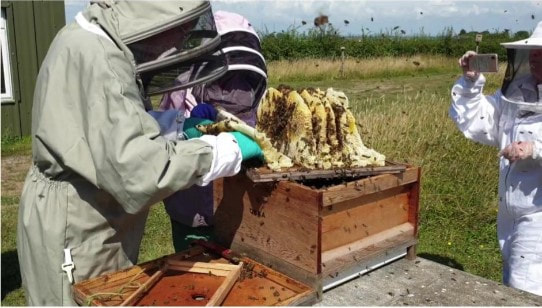
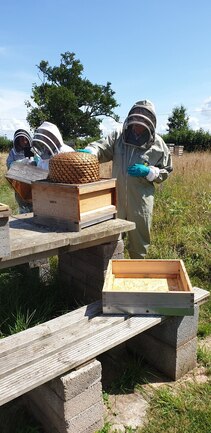
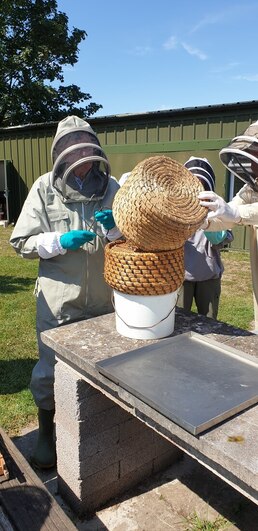
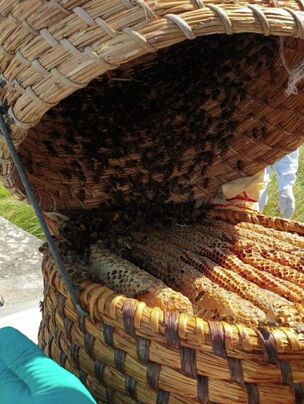
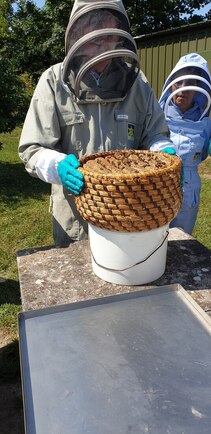
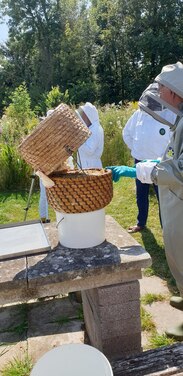
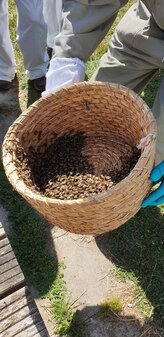
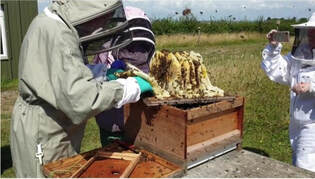
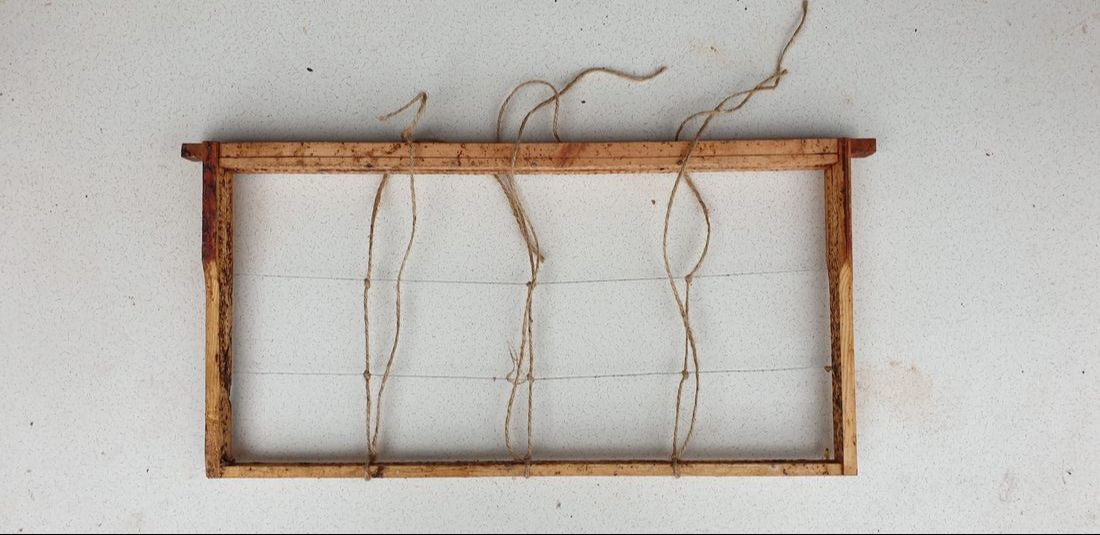
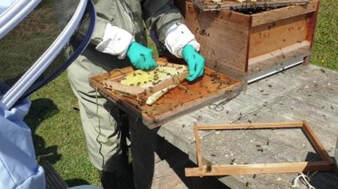
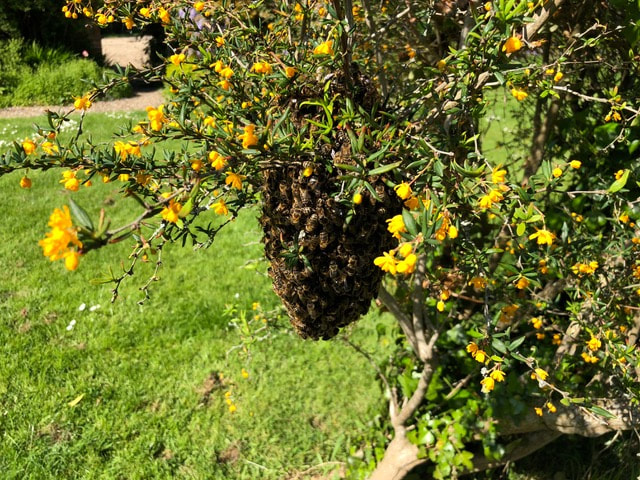
 RSS Feed
RSS Feed
